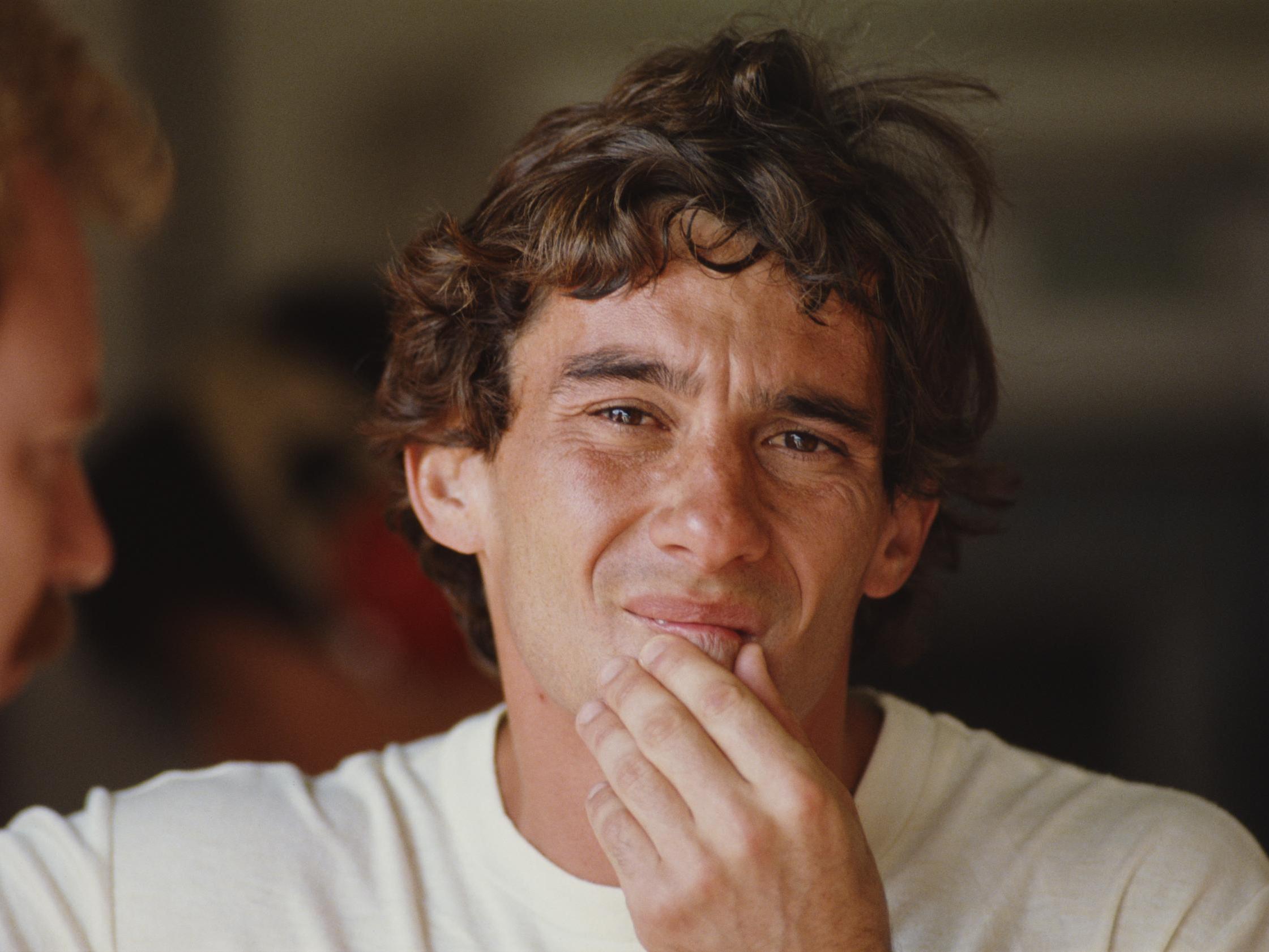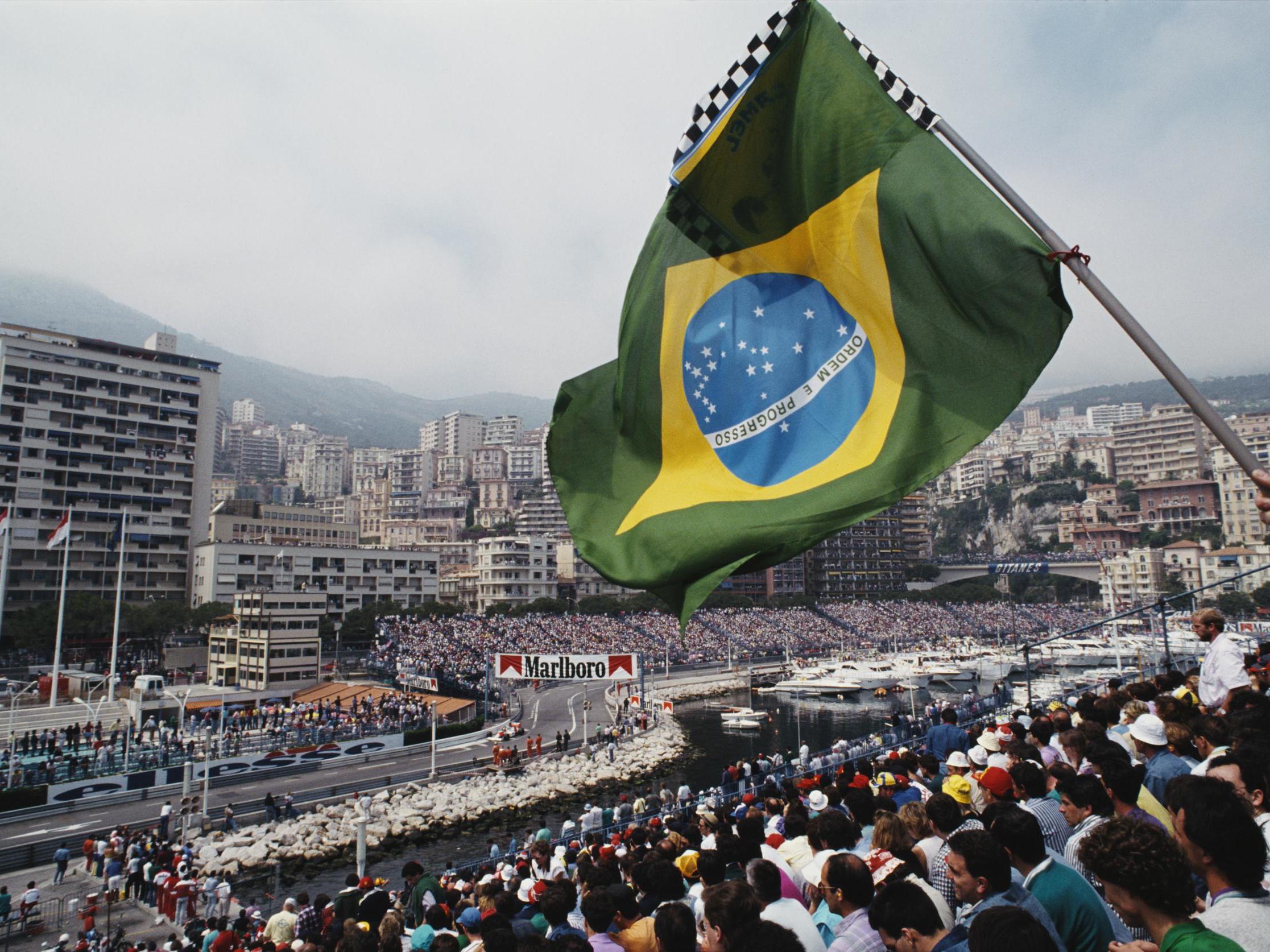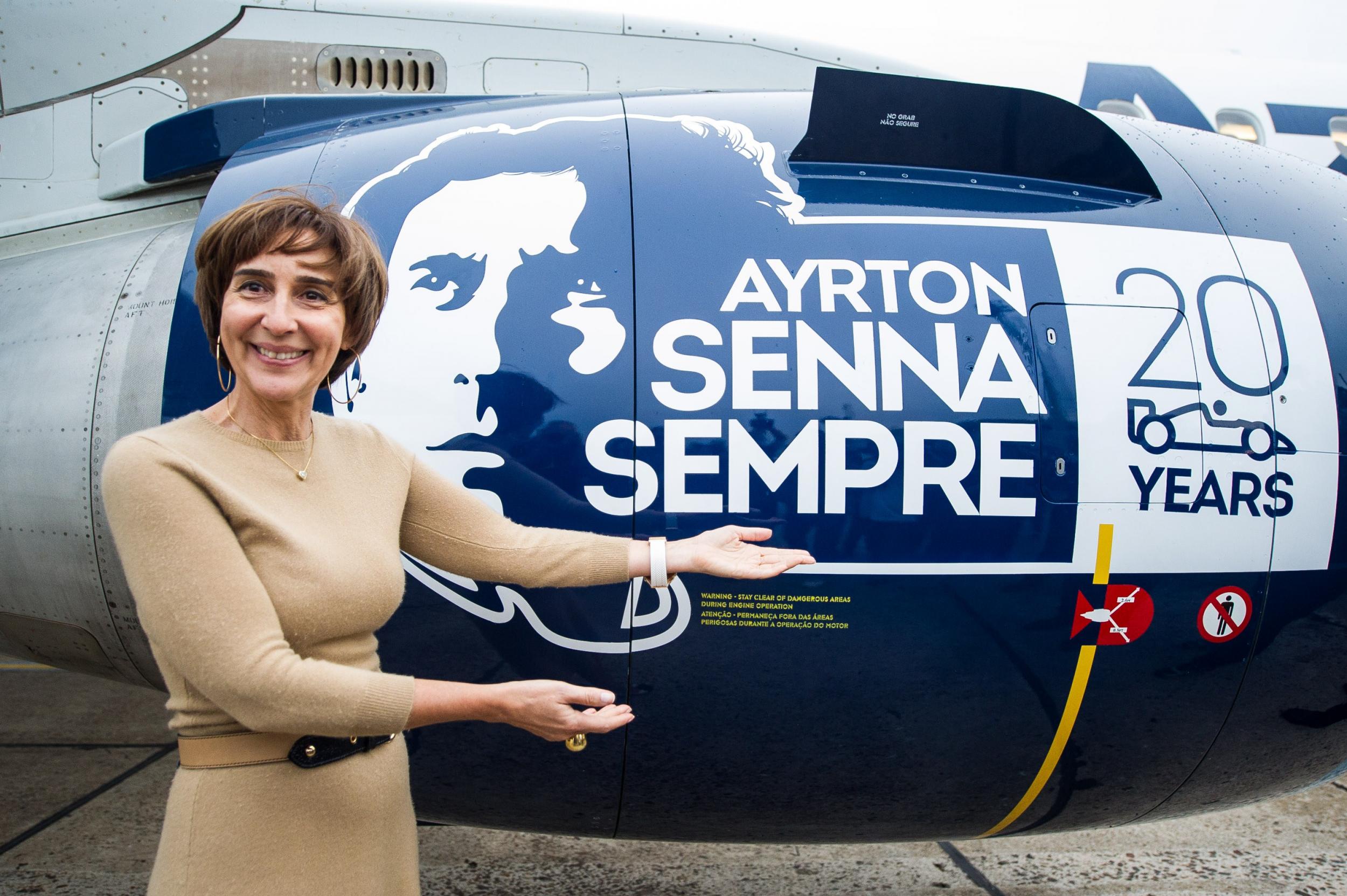Ayrton Senna: 25 years on from his tragic death, the F1 great’s legacy continues to outlast the records
Senna has inspired an entire generation of drivers, not least both Schumacher and Hamilton, to pursue four-wheel greatness, while his charity to this day continues to change the lives of the less fortunate in Brazil
Your support helps us to tell the story
From reproductive rights to climate change to Big Tech, The Independent is on the ground when the story is developing. Whether it's investigating the financials of Elon Musk's pro-Trump PAC or producing our latest documentary, 'The A Word', which shines a light on the American women fighting for reproductive rights, we know how important it is to parse out the facts from the messaging.
At such a critical moment in US history, we need reporters on the ground. Your donation allows us to keep sending journalists to speak to both sides of the story.
The Independent is trusted by Americans across the entire political spectrum. And unlike many other quality news outlets, we choose not to lock Americans out of our reporting and analysis with paywalls. We believe quality journalism should be available to everyone, paid for by those who can afford it.
Your support makes all the difference.Pressure does funny things to the human mind. Different people find different ways to deal with it, depending on how great the pressure is. For Sebastian Vettel now, that pressure is the weight of not winning a Formula One world championship for five years. For Lewis Hamilton, it is the constant desire to keep winning.
For Ayrton Senna, it was the weight of an entire nation.
Senna’s desire to win was arguably greater than Hamilton’s – if his decision to drive Alain Prost off the track at Suzuka 1990 is anything to go by – while the disappointment of missing out on the title in 1992 and 1993 weighed so greatly on his mind that it triggered his move from McLaren to Williams. Yet beyond his relentless self-motivation, his religious belief that God would guide him to victory and determination to add Michael Schumacher to his list of conquered rivals, it was Senna’s sense of duty to the people of Brazil that meant he simply could not lose. He could not quit.
Before leaving Brazil for the San Marino Grand Prix in 1994, Senna sat down with his sister, Vivianne, to discuss how he could further help his people. The three-time F1 champion was already giving considerable sums of money to charity, yet Brazil’s poverty issues were plentiful and he was determined to do more. They agreed to look into the matter further when Senna had completed the first European stint of the season in May. He would not see Vivianne again.
Senna died 25 years ago today on a weekend that shocked the world well beyond the motor racing community. Yesterday saw the 25th anniversary of the Roland Ratzenberger’s death, the Austrian driver killed during qualifying for the San Marino Grand Prix at Imola. As was and is F1’s way, the show must go on despite the dangers posed to drivers – particularly in an era where safety measures were nowhere near what they are today – being abundantly clear. Sadly, Ratzenberger would not be the last driver to lose his life behind the wheel of an F1; he would not even be the last one killed that weekend.
Heading into Imola, Senna struck a downbeat figure. The move to Williams was not working out as planned, with the FW16 proving incredibly tough to drive without the traction control and active suspension that had been banned that season. Two retirements from the Brazilian and Pacific Grands Prix had left Senna pointless in the drivers’ standings and already 20 points behind Schumacher by the time the F1 circus reached Imola. Senna was convinced that Schumacher’s Benetton had and was using traction control, having remained at trackside to listen to it lap after crashing out at the opening corner at Aida.
The circumstances surrounding Senna’s fatal crash have been documented like no other accident in F1 history, even if the real reasons for his Williams veering off the track at 190mph are not known. What is definitely known, though, is that Senna was not mentally right, having seen fellow Brazilian Rubens Barrichello narrowly avoid death during Friday practice and watching Ratzenberger’s accident while in his garage. Video footage that to this day is incredibly hard to view as Senna winces while watching before turning away in shock when the Austrian’s lifeless body comes to rest.
Two weeks after Senna and Ratzenberger were killed, Karl Wendlinger was lucky to survive an horrific crash in Monaco. Thankfully, such frequency with life-threatening collisions are no longer the case.

Today, tributes will be paid across the globe as we remember Senna. He was a one of the most unique characters the sport had ever seen, and combined with his apparent God-given talent, he captured the imagination that few drivers have ever achieved. Sadly, losing Senna was the trigger the FIA needed to make widespread changes to safety within the sport. Ratzenberger’s death did at least alert the drivers that something needed to change, with Senna immediately becoming chairman of the restarted Grand Prix Drivers’ Association, but having the world watch the death of the sport’s biggest name the following day meant that safety improvements were needed desperately.
Senna was famously asked by close friend and F1 medic Sid Watkins why he hadn’t retired. The response – “I can’t” – said everything about where Senna was mentally. He was no longer driving for himself, he was driving for Brazil.
When Michael Schumacher equalled Senna’s 41 race wins at Monza in 2000, the normally metronomic German displayed a rare burst of emotion by breaking down in tears. Both Schumacher and Lewis Hamilton are the only men to have overtaken Senna’s pole-record of 65, and both can claim to be the greater driver when it comes to success thanks to their respective seven and five world titles, to Senna’s three.

But where the records have disappeared, the legacy remains. Senna has inspired an entire generation of drivers, not least both Schumacher and Hamilton, to pursue four-wheel greatness, while his charity to this day continues to change the lives of the less fortunate in Brazil. The Ayrton Senna Foundation works with more than 50,000 Brazilian kids, putting them through an education in return for free sport – the Brazilian dream for every aspiring Pele, Marta or Senna. Every penny that is made from selling the Senna name through merchandising goes to these children, and will continue to do so come the 30th, 40th and 50th anniversaries of his death.
The rise of Schumacher in the mid-1990s may well have prevented Senna from ever winning another title – we will never know. But there is no doubt that on 1 May 1994, a burning light was tragically extinguished.

It’s for all these reasons that Senna will never be forgotten, but it’s also why 25 years later we can say that at least one shining light came out of F1’s black weekend.

Join our commenting forum
Join thought-provoking conversations, follow other Independent readers and see their replies
Comments